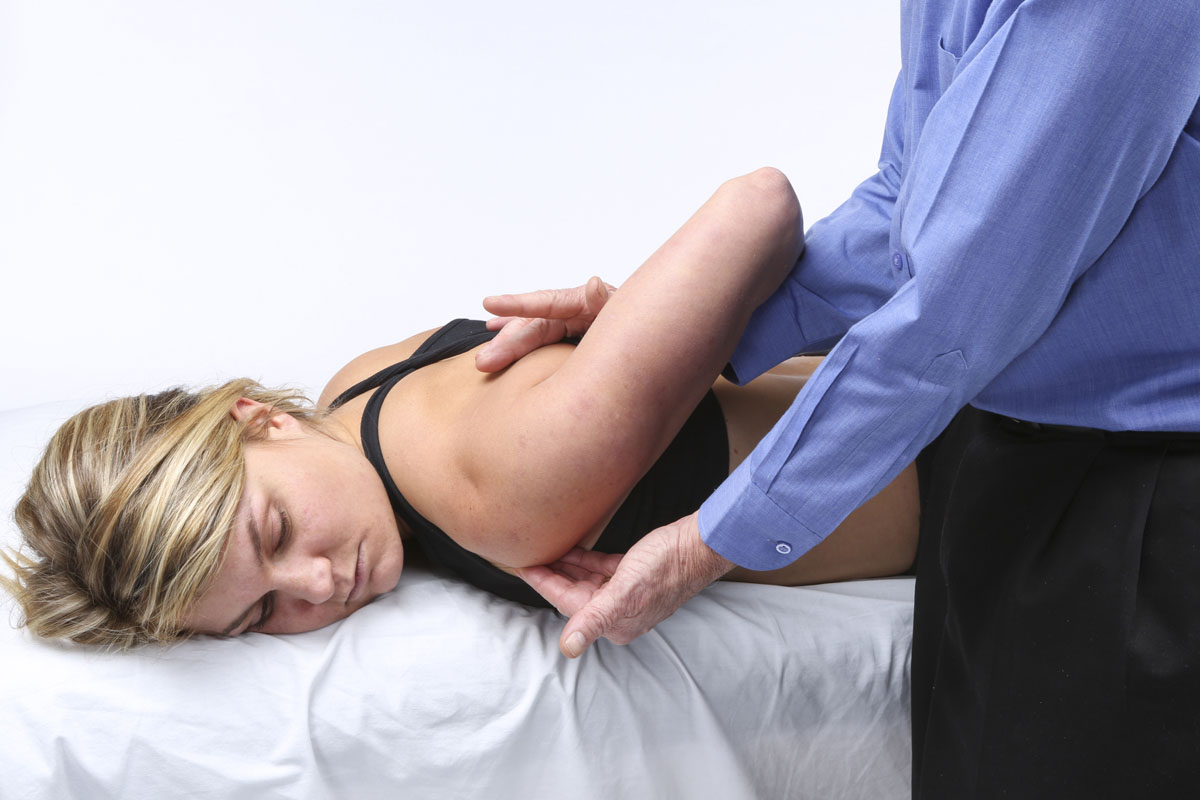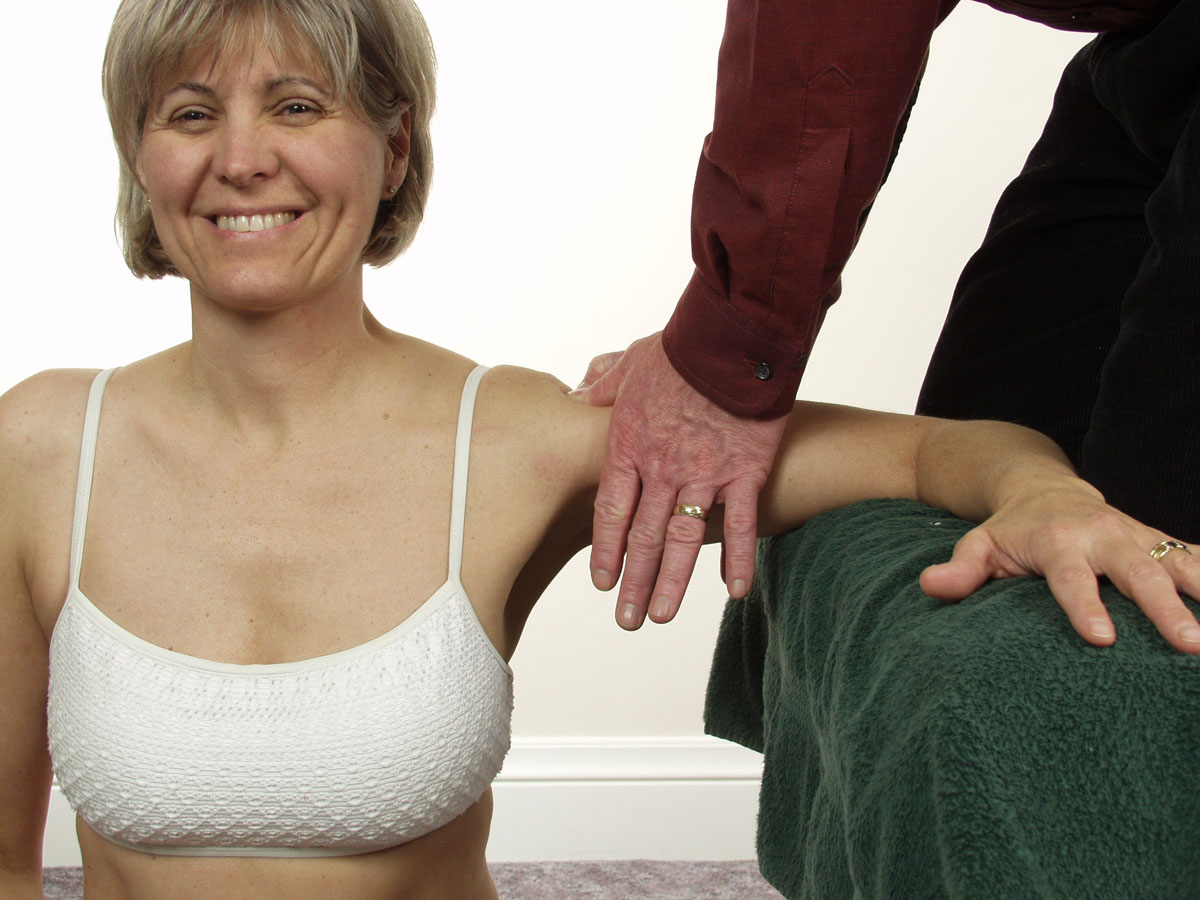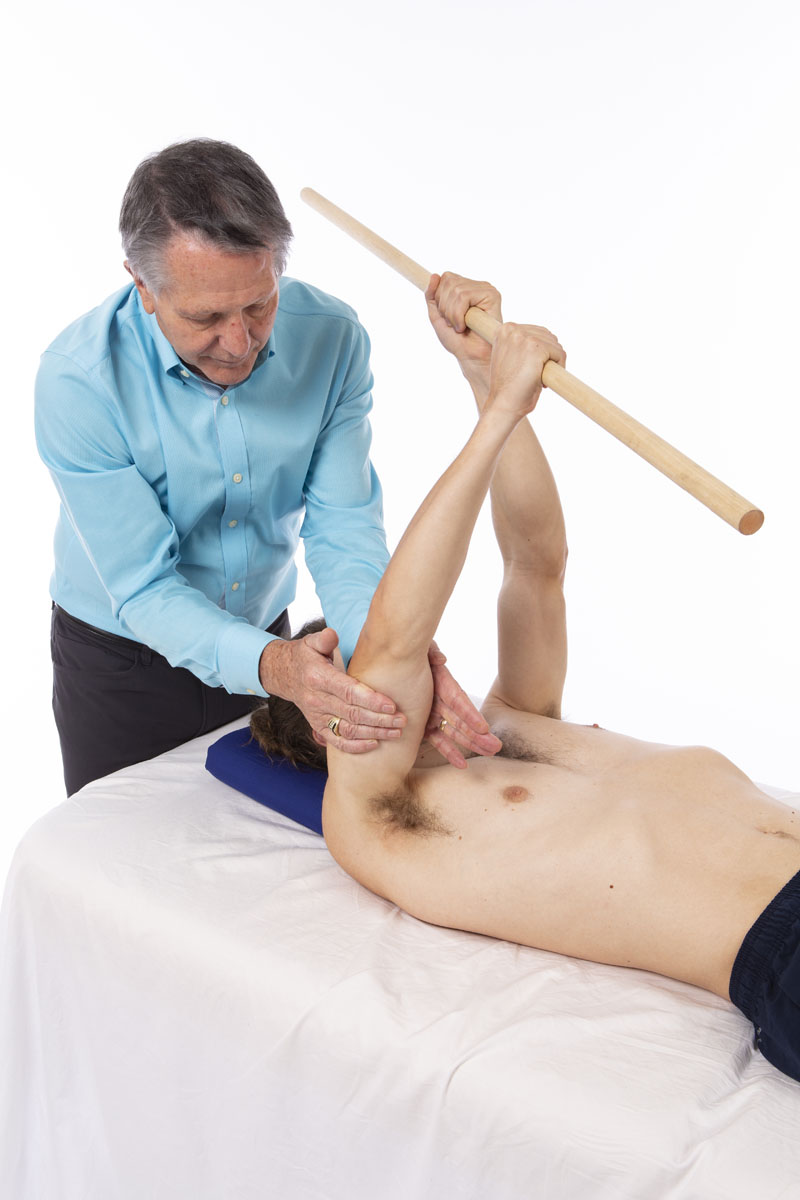Register Early and SAVE on In-Person Courses
Super Early-Bird: Register 60+ days before the course & save $100!
Early-Bird: Register 30-60 days before the course & save $50!
KSC offers a broad introduction to the Functional Manual Therapy® system of patient care with an intensive focus on the anatomical region surrounding the shoulder. This lab-intensive course blends material from a spectrum of the core curriculum courses and then expands upon that material providing additional techniques and concepts not presented in the core-curriculum classes. KSC is designed to meet the needs of both individuals new to IPA, and those seeking to expand their knowledge beyond the core-curriculum of IPA.
KSC presents the shoulder complex (humerus, scapula, and clavicle) as inextricably interconnected with the cervical spine and thoracic cage. Specific mechanical and neuromuscular assessment techniques guide the participant to identify the source of presenting shoulder signs and symptoms. In addition, utilization of the IPA disinhibition series trains participants in a unique assessment to better understand a potential cervicogenic influence on shoulder symptoms and impairments. Manual therapy interventions to the shoulder will focus on enhancing the function of 7 glenohumeral intrinsic motions and treatment through both adduction and abduction arcs of motion.
Through demonstration and supervised lab sessions, the participant will develop advanced skills of evaluation, differentiation of mechanical, neuromuscular, and motor control dysfunctions, and implementation of an appropriate plan of care and utilization of Functional Mobilization techniques to treat identified dysfunctions. Systematic functional and structural pre and post-assessments objectify the effectiveness of each intervention.
Objectives
Objectives
By the end of the course the participant will:
- Articulate and apply the Functional Manual Therapy system of clinical reasoning for assessment and treatment to the shoulder girdle and shoulder complex
- Identify underlying mechanical, neuromuscular and motor control related to shoulder and shoulder girdle function
- Complete a comprehensive subjective and objective shoulder evaluation
- Identify regional and remote contributing components to presenting shoulder pathologies
- Practice specific skills of Functional Mobilization for myofascial and articular tissues of the shoulder region, specifically:
- First and second rib
- Upper Thoracic Spine
- Shoulder Girdle
- Clavicle and AC and CS joints
- Glenohumeral intrinsic and end range motions
- Practice specific skills of neuromuscular and motor control facilitation and training to ensure CoreFirst function of the Shoulder Girdle and Shoulder region
- Practice and apply the FMT skills in guided lab sessions
- Develop an appropriate home program to ensure carry over of treatment gains and continued improvement
- Utilize Functional Tests to measure outcomes and gains
- Discuss current research and its relevance to assessment and treatment of shoulder pathologies
Requirements & Additional Information
-
Required Course Preparation
- Prior to the classroom portion of this course, all students must complete the required course preparation which includes videos, quizzes, and articles. Once enrolled in a course, required course preparation can be found by logging on to your IPA account and selecting “My Upcoming Courses.” If you have any trouble accessing the required course preparation please email [email protected] for assistance. Prep time varies by course so be sure to review required course work immediately following your purchase to allow for sufficient time to complete assignments prior to the start of the course. To receive CEUs all required course preparation must be completed prior to course commencement.
- Please have your fingernails filed and trimmed.
- Please review shoulder girdle and shoulder anatomy.
-
Required Equipment
- Release of Liability Form: Complete the Release of Liability Form and bring it to the course.
- Course Manual: PDF or printed course manual
- Half Foam Roll: (12″ x 6″ which measures 3″ tall at the apex since the 6″ round is cut in half).
- Mobilization Belt: 1.5″ x 8′
- Dycem 5” x 5”: Premium or Regular Dycem
- Towel: Large enough to provide lumbar or cervical support
- Pillow: We suggest that you bring the pillow you normally sleep on for direct feedback and learning.
- Two Pillowcases
NOTE: You may order from IPA or from a number of other providers. IPA orders that are received three weeks prior to a course, and clearly request shipment to a course, may be shipped directly to the course. All other orders will be shipped to the address given on the order.
Optional Equipment:
- Spiral Bound Manual: Optional printed & spiralbound manual may be purchased with the course (PDF manual included with tuition)
- Snowman Tool with hat
- Kong Tool
- Neoprene Mobilization Belt Pad
- Fascia Freer
- Water Bottle: Water is not always immediately available
- Coffee / Snacks: You are welcome to bring your own coffee, tea and snacks, as these will not be provided
-
CEU Information
16 Contact Hours
To receive CEUs all required course preparation must be completed PRIOR to course commencement.Approved for PTs in NY, IL, and CA. For a different state, please check with your state board for reciprocity of CEU approval from one of these states. IPA will provide the standard documentation needed for individual state approval if your state does not accept reciprocity. OTs, and PTAs should check with their approving body to determine if the PT approval is acceptable.
For ATCs – This course has been approved by the BOC for Category A contact hours.
-
Price Information
Earlybird Price: $700 / Regular Price: $750
Earlybird Discounts: Register at least one month prior to course commencement and receive a discount of approximately 10%. Register early and save!
Student / New Professional Discounts: Students and First Year New Professionals can receive a 20% discount. Full details here.
Repeat Discounts: IPA makes two (2) spots in each in-person course available at half-price for those repeating a course within five (5) years. Registration for the half-price spots is on a first-come basis. You must register by phone to receive a half-price repeat spot. Registering online will result in you being charged full price. Credits cannot be issued once your transaction is complete. Half-price tuition does not include a course manual or any supplies distributed at the course. Full details here.
-
Recommended Reading and Viewing
It is recommended that each participant reviews the Bibliography and read any article they are unfamiliar with prior to the course. All Course Bibliographies.
-
Audience & Attendance
PT, PTA, OT, OTA, SPT, OTS, & ATC
Attendees agree to utilize all skills of evaluation, assessment and treatment learned in this course to the extent allowed under the regulations of their professional practice act. By registering you acknowledge that your attendance does not represent authorization by the IPA, or any of its officers, to utilize any of the material learned which may lie outside of the strict interpretation of your practice act.
Each attendee is expected to complete the required pre-course work before the course begins, and attend all hours of instruction to receive a certificate of completion. Any exceptions to this policy must be pre-approved in writing by the Directors.
-
Lab Clothing
- Each participant’s body must be accessible for observation of the shoulder girdle and shoulder.
- Women: Halter tops, sports bras, or similar.
- Please refrain from wearing large or sharp jewelry.
- It is recommended to wear layers for comfort between labs as temperatures may vary in the room
-
Breaks
Meals are not provided. You are welcome to bring your own coffee, tea and snacks, as these will not be provided by the facility. Please be mindful of your snack choices as you will be consuming them among the other participants.
-
Instructor Note
While specific instructors are scheduled for each course, circumstance may necessitate instructor changes. In addition, the final number of instructors is determined by enrollment. Course refunds or transfers are not granted related to changes in the designated instructor or number of instructors.
Instructor/Participant Ratio:
- 1 Instructor: ≤ 20 participants
- 2 Instructors: 22 – 32 participants
- 3 Instructors: ≥ 34 participants
Hours
2 Days, 16 Contact Hours.
Prerequisites
None
Required Equipment
- Release of Liability
- Course Manual
- 8ft. Mobilization Belt
- Half Foam Roll
- Dycem: 5” x 5” Premium or Regular Dycem
- Towels
- Pillow with 2 cases
Dates & Locations
-
Burke Rehabilitation HospitalWhite Plains, NY
Mar 27, 2026 - Mar 28, 2026
Schedule Location Date & Time Course:
Modified days -Course Check-inLocation:
Burke Rehabilitation Hospital White Plains , NYDate:
Starts at 7:30 am EDT
Ends at 8:00 am EDTCourse:
FridayLocation:
Burke Rehabilitation Hospital White Plains , NYDate:
Starts at 8:00 am EDT
Ends at 6:00 pm EDTCourse:
SaturdayLocation:
Burke Rehabilitation Hospital White Plains , NYDate:
Starts at 8:00 am EDT
Ends at 4:00 pm EDT -
TherapySouth - MadisonMadison, MS
May 2, 2026 - May 3, 2026
Schedule Location Date & Time Course:
Course Check-inLocation:
TherapySouth - Madison Madison , MSDate:
Starts at 7:30 am CDT
Ends at 8:00 am CDTCourse:
SaturdayLocation:
TherapySouth - Madison Madison , MSDate:
Starts at 8:00 am CDT
Ends at 6:00 pm CDTCourse:
SundayLocation:
TherapySouth - Madison Madison , MSDate:
Starts at 8:00 am CDT
Ends at 4:00 pm CDT -
Water and Sports Physical TherapySan Diego, CA
Jun 27, 2026 - Jun 28, 2026
Schedule Location Date & Time Course:
Course Check-inLocation:
Water and Sports Physical Therapy San Diego , CADate:
Starts at 7:30 am PDT
Ends at 8:00 am PDTCourse:
SaturdayLocation:
Water and Sports Physical Therapy San Diego , CADate:
Starts at 8:00 am PDT
Ends at 6:00 pm PDTCourse:
SundayLocation:
Water and Sports Physical Therapy San Diego , CADate:
Starts at 8:00 am PDT
Ends at 4:00 pm PDT -
Atlas Physical TherapyNampa, ID
Jul 18, 2026 - Jul 19, 2026
Schedule Location Date & Time Course:
Course Check-inLocation:
Atlas Physical Therapy Nampa , IDDate:
Starts at 7:30 am MDT
Ends at 8:00 am MDTCourse:
SaturdayLocation:
Atlas Physical Therapy Nampa , IDDate:
Starts at 8:00 am MDT
Ends at 6:00 pm MDTCourse:
SundayLocation:
Atlas Physical Therapy Nampa , IDDate:
Starts at 8:00 am MDT
Ends at 4:00 pm MDT -
American Career College - Ontario, CAOntario, CA
Sep 19, 2026 - Sep 20, 2026
Schedule Location Date & Time Course:
Course Check-inLocation:
American Career College - Ontario, CA Ontario , CADate:
Starts at 7:30 am PDT
Ends at 8:00 am PDTCourse:
SaturdayLocation:
American Career College - Ontario, CA Ontario , CADate:
Starts at 8:00 am PDT
Ends at 6:00 pm PDTCourse:
SundayLocation:
American Career College - Ontario, CA Ontario , CADate:
Starts at 8:00 am PDT
Ends at 4:00 pm PDT -
Keating Physical TherapyCranford, NJ
Sep 26, 2026 - Sep 27, 2026
Schedule Location Date & Time Course:
Course Check-inLocation:
Keating Physical Therapy Cranford , NJDate:
Starts at 7:30 am EDT
Ends at 8:00 am EDTCourse:
SaturdayLocation:
Keating Physical Therapy Cranford , NJDate:
Starts at 8:00 am EDT
Ends at 6:00 pm EDTCourse:
SundayLocation:
Keating Physical Therapy Cranford , NJDate:
Starts at 8:00 am EDT
Ends at 4:00 pm EDT -
Elite Sports Physical TherapyFremont, CA
Nov 7, 2026 - Nov 8, 2026
Schedule Location Date & Time Course:
Course Check-inLocation:
Elite Sports Physical Therapy Fremont , CADate:
Starts at 7:30 am PST
Ends at 8:00 am PSTCourse:
SaturdayLocation:
Elite Sports Physical Therapy Fremont , CADate:
Starts at 8:00 am PST
Ends at 6:00 pm PSTCourse:
SundayLocation:
Elite Sports Physical Therapy Fremont , CADate:
Starts at 8:00 am PST
Ends at 4:00 pm PST






